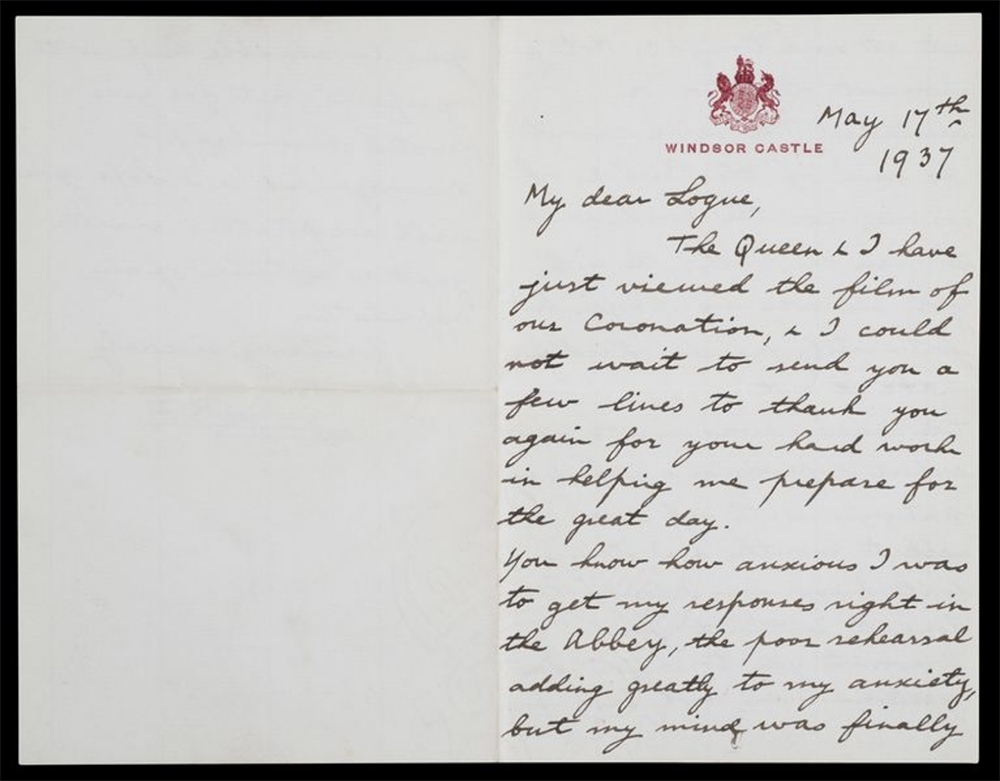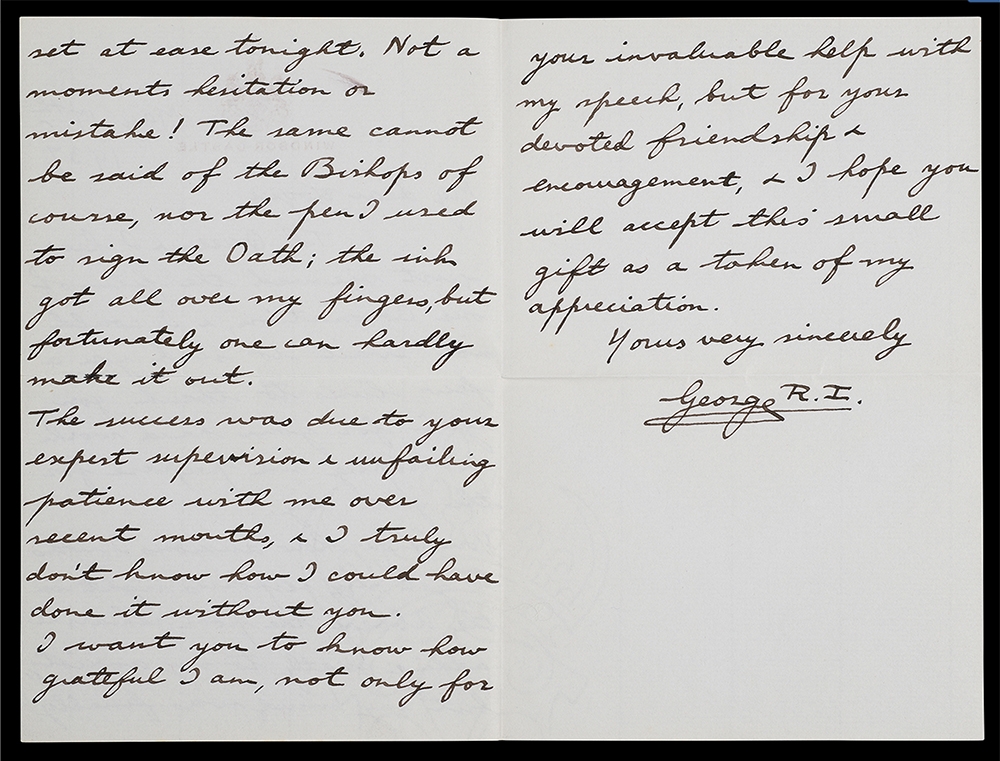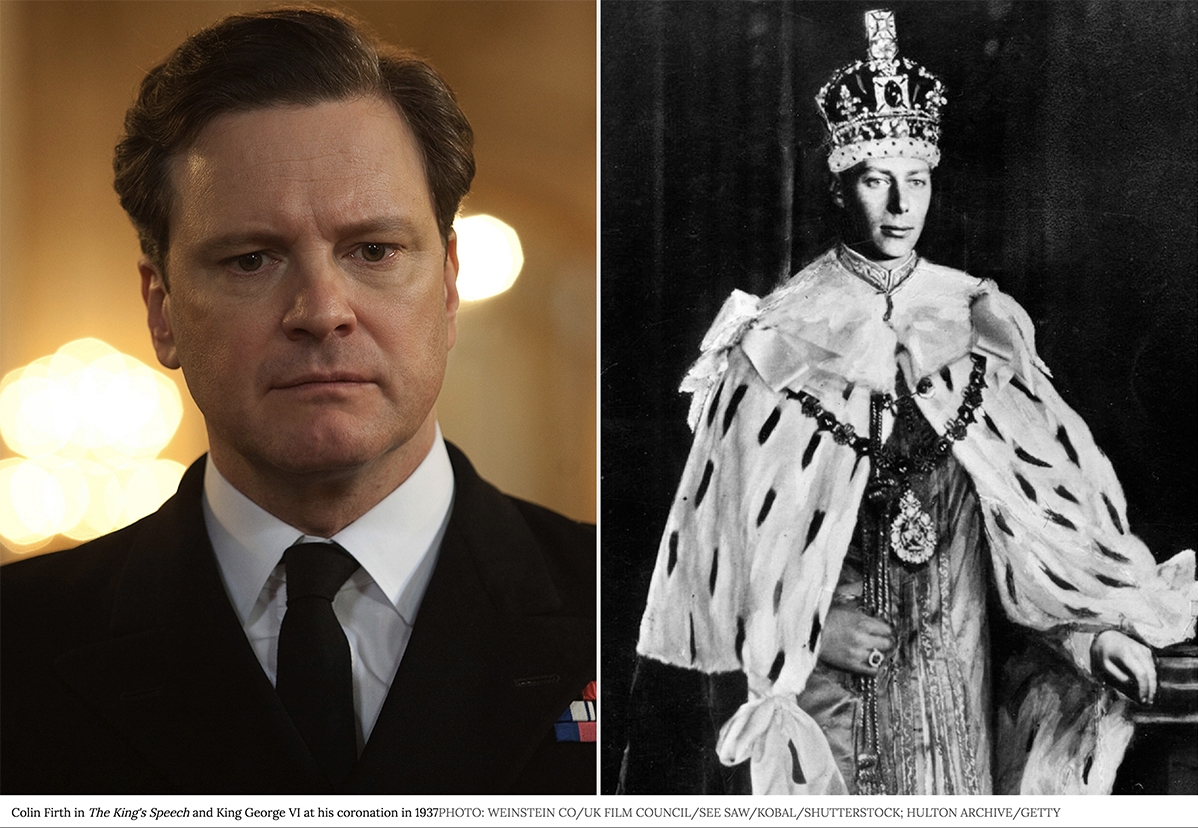“The King’s Speech” highlights a common condition of which many people are unaware and also shows speech conditions can be overcome.
Colin Andrew Firth’s first acting experience at the age of 5, came in infant’s school when he played “Jack Frost” in a Christmas pantomime. He is an English actor who has received an Academy Award, a Golden Globe Award, two BAFTA Awards, and three Screen Actors Guild Awards, as well as the Volpi Cup for Best Actor at the Venice Film Festival. In 2010, Firth’s portrayal of King George VI in Tom Hooper’s The King’s Speech won him the Academy Award for Best Actor.
The King’s Speech tells the story of the man who became King George VI, the father of Queen Elizabeth II. After his brother abdicates, George (‘Bertie’) reluctantly assumes the throne. Plagued by a dreaded stutter and considered unfit to be king, Bertie engages the help of an unorthodox speech therapist named Lionel Logue. Through a set of unexpected techniques, and as a result of an unlikely friendship, Bertie is able to find his voice and boldly lead the country into war.
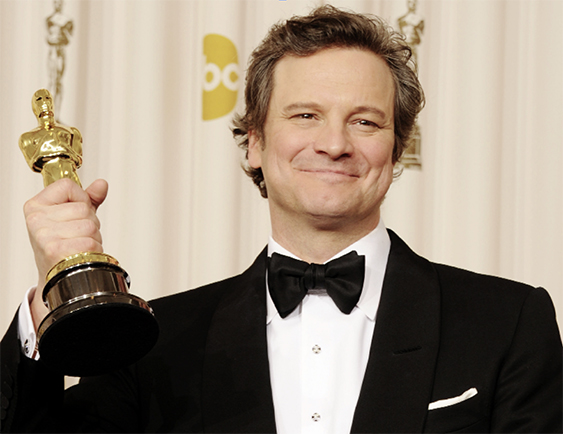 When asked whether he used a speech therapist while researching the role Firth replied: “Not really no, I consulted with several people. I had a dialogue coach because in a way the discovery of the stammer had to be quite personal and it had to be quite specific to this individual. It had to come from some visceral place but it also had to be very carefully monitored for the sake of the drama because if it takes 20 minutes to get a word out it will affect the pace of the film (laughs). So you have to find something, which is not only authentic and expressive but which is also very specific to this person and what he’s going through. You also have to find something that doesn’t alienate the audience, that doesn’t slide into some sort of pastiche, that isn’t painful in a way that people resist it.
When asked whether he used a speech therapist while researching the role Firth replied: “Not really no, I consulted with several people. I had a dialogue coach because in a way the discovery of the stammer had to be quite personal and it had to be quite specific to this individual. It had to come from some visceral place but it also had to be very carefully monitored for the sake of the drama because if it takes 20 minutes to get a word out it will affect the pace of the film (laughs). So you have to find something, which is not only authentic and expressive but which is also very specific to this person and what he’s going through. You also have to find something that doesn’t alienate the audience, that doesn’t slide into some sort of pastiche, that isn’t painful in a way that people resist it.
This is where I had to work very closely with Tom (Director Tom Hooper). This was one of his early concerns with how to pace it and how to score it if you like. How bad it has to be here, in order for it to get to here? When are the relapses? How much can we afford to dwell in painful silences? Having established them can we perhaps afford to pick up the pace because of the humor in the film? I know there’s a jokey reference that timing wasn’t his strong suit, but you do have to tread a very careful line between not throwing away the humor without throwing away the stammer. Tom was very closely involved in how that would be laid out.”
“Having said that we did have a speech therapist come by during rehearsal who gave us very good advice in the forms it can take. My sister is a voice therapist so she was extremely helpful in terms of the exercises that can be done. For example in the montage sequence, most of those came from her consultations. But I think the best consultant I had was David Seidler the screenwriter, he was so compelling about the experience and what you do in life to negotiate around the speech problems that you have. The fact that it has a profound effect on your identity because you don’t do what you want to do, you do what you can do in a lot of cases, maybe you can’t order Beef at a restaurant because you can’t get the B out so you have to order the Fish. You make choices according to these limitations. That insight and what my sister gave me were definitely the most useful help I got.”
While preparing for this role, Firth couldn’t employ his usual method of shadowing the person he was about to play. So he drew from the experiences of David Seidler, the film’s screenwriter, who had grown up with speech difficulties after evacuating from Britain to the U.S. during World War II. Seidler had heard the king’s speeches and was inspired by them. “The story was as much about David Seidler as anyone,” Firth stated. The actor himself could identify with the role, as he had dealt with a nodule on his vocal cords in his mid-20s. Though not a stutter, Firth found it debilitating and avoided crowded rooms. He drew on these memories of how he felt to enhance his portrayal.
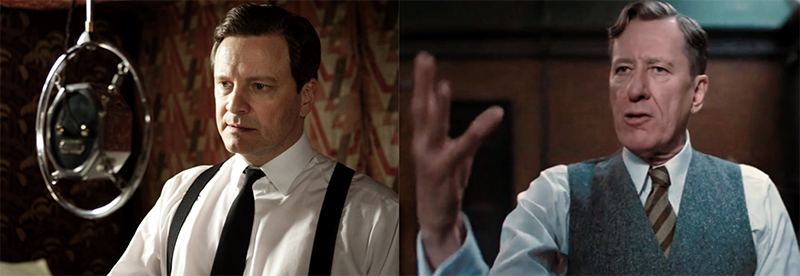
The tale also reveals the importance of the bond that needs to be established between patient and therapist before any progress can be made. Barriers need to be broken down before treatment can even begin. The dangers of too much familiarity too soon can also cause delays in progress. Firth said: “I think what I admired most about the structure of this piece is that it doesn’t pivot on one moment. Like any credible relationship portrayal it ebbs and it flows, it has breaking points, it’s cyclical, it’s like a marriage. You see that trust being tussled over the whole time.”
“The King’s Speech” highlights a common condition of which many people are unaware and also shows speech conditions can be overcome. We often see people with speech impediments being teased, bullied and embarrassed by others who misunderstand or lack compassion for those less fortunate than themselves. The problem is that many people assume a person with a speech impediment is mentally impaired, too. This assumption could not be further from the truth.
The more sophisticated the world becomes, the more we seem to lag behind in our understanding of stuttering and similar conditions. The world needs to be taught that speech difficulties are not mental and that we can improve the lives of those suffering from speech impediments by showing a little tenderness and kindness.
Update: A long-forgotten letter from King George VI to his speech therapist has revealed more about the story behind Colin Firth’s Oscar-winning role in The King’s Speech.
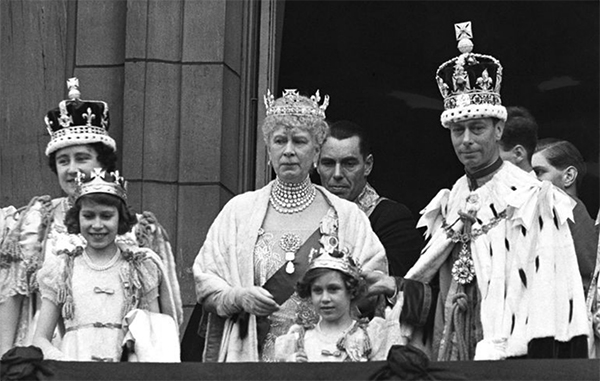
Written at Windsor Castle on May 17, 1937 — just five days after the English monarch’s coronation — the letter details King George’s immense gratitude towards Lionel Logue for helping him to control his debilitating stammer.
“The Queen and I have just viewed the film of our Coronation, & I could not wait to send you a few lines to thank you again for your hard work in helping me prepare for the great day,” Queen Elizabeth‘s father says in the letter, which is scheduled to be auctioned on April 29.
“The success was due to your expert supervision and unfailing patience with me over recent months, & I truly don’t know how I could have done it without you,” the letter continued.
In the note dated 17th May 1937 and sent from Windsor Castle, King George VI writes:
